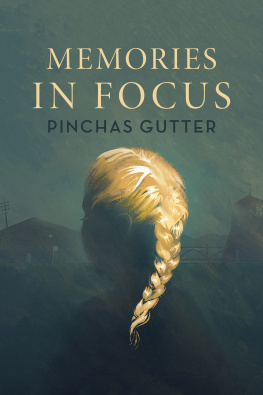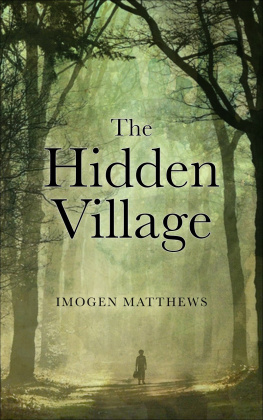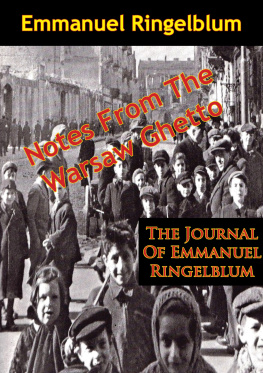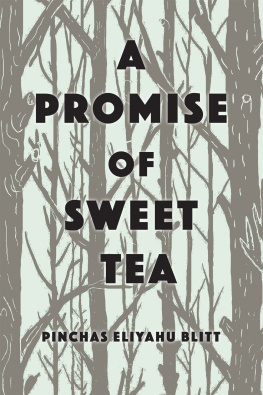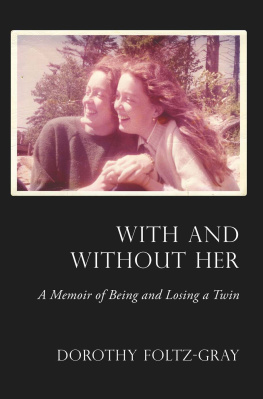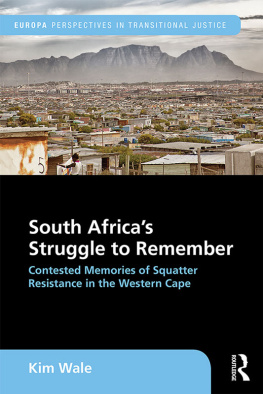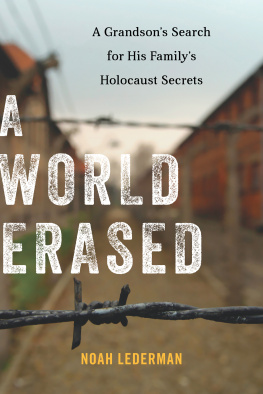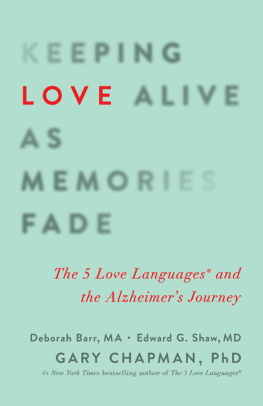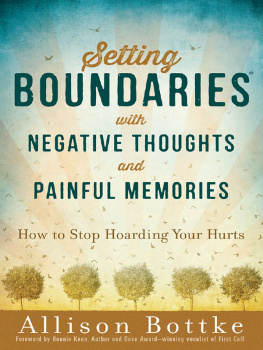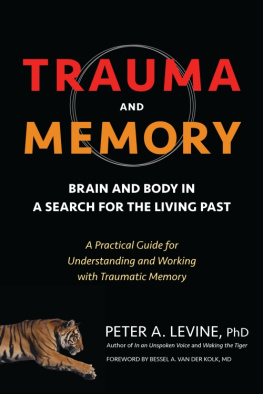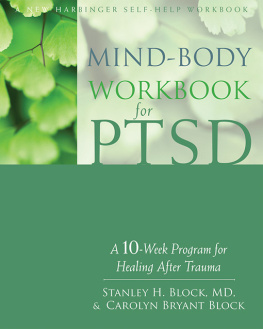The Azrieli Series of Holocaust Survivor Memoirs
Naomi Azrieli, Publisher
Jody Spiegel, Program Director
Arielle Berger, Managing Editor
Farla Klaiman, Editor
Matt Carrington, Editor
Elizabeth Lasserre, Senior Editor, French-Language Editions
Elin Beaumont, Senior Education Outreach and Program Facilitator
Catherine Person, Educational Outreach and Events Coordinator, Quebec and French Canada
Stephanie Corazza, Education and Curriculum Associate
Marc-Olivier Cloutier, Educational Outreach and Events Assistant, Quebec and French Canada
Elizabeth Banks, Digital Asset Curator and Archivist
Susan Roitman, Office Manager (Toronto)
Mary Mellas, Executive Assistant and Human Resources (Montreal)
Mark Goldstein, Art Director
Franois Blanc, Cartographer
Bruno Paradis, Layout, French-Language Editions
Contents
Series Preface: In their own words...
In telling these stories, the writers have liberated themselves. For so many years we did not speak about it, even when we became free people living in a free society. Now, when at last we are writing about what happened to us in this dark period of history, knowing that our stories will be read and live on, it is possible for us to feel truly free. These unique historical documents put a face on what was lost, and allow readers to grasp the enormity of what happened to six million Jews-one story at a time.
DavidJ.Azrieli, C.M., C.Q., M.Arch
Holocaust survivor and founder, The Azrieli Foundation
Since the end of World War ii, approximately 40,000 Jewish Holocaust survivors have immigrated to Canada. Who they are, where they came from, what they experienced and how they built new lives for themselves and their families are important parts of our Canadian heritage. The Azrieli Foundations Holocaust Survivor Memoirs Program was established in 2005 to preserve and share the memoirs written by those who survived the twentieth-century Nazi genocide of the Jews of Europe and later made their way to Canada. The program is guided by the conviction that each survivor of the Holocaust has a remarkable story to tell, and that such stories play an important role in education about tolerance and diversity.
Millions of individual stories are lost to us forever. By preserving the stories written by survivors and making them widely available to a broad audience, the Azrieli Foundations Holocaust Survivor Memoirs Program seeks to sustain the memory of all those who perished at the hands of hatred, abetted by indifference and apathy. The personal accounts of those who survived against all odds are as different as the people who wrote them, but all demonstrate the courage, strength, wit and luck that it took to prevail and survive in such terrible adversity. The memoirs are also moving tributes to people strangers and friends who risked their lives to help others, and who, through acts of kindness and decency in the darkest of moments, frequently helped the persecuted maintain faith in humanity and courage to endure. These accounts offer inspiration to all, as does the survivors desire to share their experiences so that new generations can learn from them.
In 2011, the Azrieli Foundation, in partnership with Ryerson University in Toronto, created a new program called Sustaining Memories, designed to assist Holocaust survivors in writing their memoirs. Sustaining Memories trains adult or mature volunteers to work with Holocaust survivors to record their stories and assist them in producing a written manuscript for their families.
The Holocaust Survivor Memoirs Program collects, archives and publishes select survivor memoirs and makes the print editions available free of charge to educational institutions and Holocaust-education programs across Canada. They are also available for sale to the general public at bookstores. All revenues to the Azrieli Foundation from the sales of the Azrieli Series of Holocaust Survivor Memoirs go toward the publishing and educational work of the memoirs program.
The Azrieli Foundation would like to express appreciation to the
following people for their invaluable efforts in producing this book: Doris Bergen, Sherry Dodson (Maracle Inc), Barbara Kamieski, Vivian Felsen, Therese Parent, Myrna Riback, Stephen Smith, and Margie Wolfe & Emma Rodgers of Second Story Press.
About the Glossary
The following memoir contains a number of terms, concepts and historical references that may be unfamiliar to the reader. For information on major organizations; significant historical events and people; geographical locations; religious and cultural terms; and foreign-language words and expressions that will help give context and background to the events described in the text, please see the .
Introduction
There was something special about my meeting with Pinchas Gutter that is hard to put into words. It was not that he was a Holocaust survivor, because when I met him I had already met hundreds of people who had survived the Holocaust. It was not that he was an amazing storyteller, even though I was mesmerized by his gentle tone and lyrical style. It was not that we shared an interest in music and had both lived in England, or that I had spent my childhood vacations in the Lake District of England, at the very place he was brought to as an orphan survivor. I am sure these shared qualities helped form a bond, but it was something to do with his neshama, his spirit, that was unusually captivating. He was both gentle and deep, and I felt like I could listen to him for hours. Little did I know that one day I would.
This book captures the story of Pinchas Gutter in his own words. You will witness the world of the Jews of Lodz, Poland, through the eyes of a five-year-old; the world of the Nazis through the eyes of a seven-year-old; the world of the Warsaw ghetto through the eyes of a ten-year-old; Majdanek concentration camp through the eyes of an eleven-year-old; slave labour through the eyes of a twelve-year-old; and finally, liberation through the eyes of a thirteen-year-old. You will observe the power of memory, and the ability to recall and retell the story of that boy as remembered by an eighty-five-year-old man.
Pinchas Gutter has told his story in many different ways over a twenty-year period. In 1993, he spoke on camera at Torontos
Holocaust Memorial Centre and gave a four-hour interview about his life. In 1995, he gave another video interview to usc Shoah Foundation covering his life history. In 2002, I had the opportunity to make a documentary with him called The Void: In Search of Memory Lost, which was about his first visit back to Poland fifty-seven years after he was forced to leave the country after becoming a slave labourer. In 2014, he made another documentary, Politische. Pole-Jude, which tells his life story through visiting the places where he once lived. In 2015, he answered 1,500 questions about his life to become the first-ever interactive interviewee as a part of usc Shoah Foundations New Dimensions in Testimony program. In 2017, he became the first
Holocaust survivor to tell his story in full room-scale Virtual Reality. The VR piece The Last Goodbye allows viewers to join him as he journeys back to the Nazi death camp, Majdanek, and explains where he lived, including where his family was murdered.

